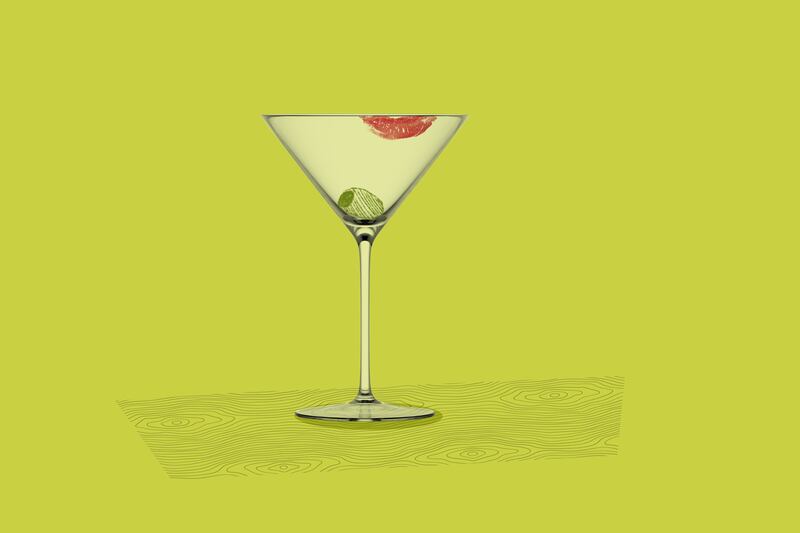When all the holiday fanfare, feasting and fun comes to an end, some may need a break from rich food and drink. After all, the holiday season is full of parties, which can involve heavy food and drinking.
Enter “Dry January.”
Like the new year often ushers in healthier habits for people and encourages individuals to refocus on wellness, Dry January focuses on an overhaul of drinking habits.
What does Dry January mean?
Dry January is a term that describes the trend of staying sober for the month. According to Today, this trend started in 2012 when Alcohol Change U.K., a nonprofit, launched a campaign extolling the benefits of decreased alcohol consumption — including no hangovers, weight loss and the ability to save money. In 2022, 35% of U.S. adults participated in the trend and 74% of them were successful.
Alcohol Change U.K. said that Dry January not only has short-term benefits, like brighter skin and better sleep, but it also helps with developing year-round habits. Research from the University of Sussex found that 70% of participants develop healthier drinking habits after participating in the challenge. Temporary abstinence was found to be associated with greater well-being.
In a Balance NE video, Dr. Sarah Louden explained that drinking can have adverse effects and can correlate with breast cancer in women. She said that participating in Dry January can jump-start habits that help you avoid life-threatening diseases.
And the demographic that is the most interested in abstinence or is the most “sober curious” might surprise you.
Disproportionately represented among the sober curious tends to be younger generations. Forbes reported that customers ages 21 to 25 are helping to drive the drinking market toward nonalcoholic beers, wines and cocktails. Demand for these types of products is nearly double for those ages 21 to 25 than for those who are above the age of 35.
Like Fendi Wang observed for Deseret Magazine, “Gen Z and millennials are tempering their alcohol consumption, partly as a reaction to the pandemic — adults drank 14% more often in 2020, according to a report by the American Medical Association — but also because of a growing cultural emphasis on wellness and individualism.” The new temperance movement, as Wang called it, is driven by a younger market.
So, are there benefits to sobriety?
While it seems like the news flips flops every month on whether or not alcohol is beneficial, there’s emerging research around why that is the case.
Is alcohol beneficial?
Previously, it was thought that moderate consumption of alcohol could reduce the risk of heart disease, diabetes and stroke, like Eric Schulzke wrote for Deseret News. But now scientists are interrogating the veracity and uniqueness of those alleged benefits. As Schulzke wrote, there have been recent high-profile studies and expert commentaries on how there is no amount of alcohol consumption that contributes to overall health.
One potential answer for why it was thought that moderate consumption of alcohol had these benefits emerged from a Massachusetts General Hospital study. This large study used information from the U.K. Biobank and included 371,463 adults. Moderate consumption of alcohol was found present in individuals who tended to live healthier lives overall and the study concluded that moderate alcohol consumption may not be responsible for alleged health benefits.
This means that while it was previously thought moderate alcohol consumption was responsible for health benefits, now it is thought that other habits like exercise and diet were responsible for overall health. It may be that alcohol doesn’t have unique health benefits.
This might be especially true for younger generations.
Why is Gen Z so sober curious?
A study published this year, reported on by Lois Collins for the Deseret News, found that no amount of alcohol consumption is safe for people under 40 years old. This landmark study, funded by the Bill and Melinda Gates Foundation, said that 60% of alcohol-related injuries and deaths happen to those who are between the ages of 19 and 39. This study suggested that no drinking is beneficial below the age of 40 and light drinking may be beneficial above the age of 40.
But alcohol consumption for people at any age has also been contested. A 2021 Oxford University study found that there is no safe amount of alcohol consumption, at any age, for brain health. The study also found that moderate consumption of alcohol was associated with more negative impacts that previously thought.
One of the reasons Gen Z might be less interested in alcohol consumption is because they may be more aware of the health impacts than other generations.
Google research showed that Gen Zers were more likely to associate alcohol consumption with “vulnerability” and “anxiety,” according to the BBC. University of Sheffield professor John Holmes, who researches alcohol policy, said that Gen Z is more aware of health risks with alcohol and their attitudinal shifts toward its consumption are more negative than older generations.
Madison Selcho wrote for the Deseret News about the myriad factors that render Gen Z a more sober curious generation. While health is a significant reason that Gen Z is shunning alcohol more than old generations, income and interest are also reasons, and so is the generation’s attitude toward risks.
“(The decrease in alcohol consumption is) certainly not happening because of alcohol policy, because all risky practices are going down — drug use, unprotected sex, risky behaviors (like smoking, crime and driving hazardously) — young people are more risk averse in general,” Amy Pennay, a senior research fellow at the Centre for Alcohol Policy Research, said to BBC.
With Dry January around the corner, Gen Z might just lead the way in abandoning alcohol for healthier habits.


